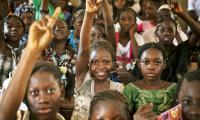UNESCO endorsement will strengthen human rights education worldwide

The tool has been developed in consultation with The Office of the High Commissioner for Human Rights (OHCHR) under a project funded by the Permanent Mission of Denmark to the UN in Geneva.
With UNESCO’s endorsement of a methodology developed by the Institute, we aim for the long-term result of growing numbers of people who stand up for their rights and protect and uphold the rights of others.
The endorsement means that the tool will gain global exposure and hopefully become indispensable to both states and national human rights institutions when they assess the extent to which human rights education is included in national policies and school curricula.
The methodology enables states and national human rights institutions to collect data on the progress of the human rights education elements of SDG target 4.7 and the UN World Programme for Human Rights Education (WPHRE). It allows them to assess whether learning environments in schools are characterised by respect and human dignity, and whether teachers enable self-expression and decision-making among students.
With states held accountable for their implementation of human rights education as enshrined in conventions, resolutions, declarations and programmes, this methodology can help them fulfil their obligations. By using the tool, states can see where and how they are lagging behind, and ultimately strengthen their implementation of human rights education in national policies and school curricula.
The tool and its continued work to close data gaps provides a crucial baseline to understand the status of human rights education in Kenya. It creates accountability and possibility for progress
With their monitoring mandate and expertise, national human rights institutions (NHRIs) are well-placed to act as data providers on human rights education. So far, ten African NHRIs have used the tool. Moreover, NHRIs from Georgia, Slovenia, Ecuador and the Philippines have tested an earlier version of the tool and contributed to its development.
‘The tool and its continued work to close data gaps provides a crucial baseline to understand the status of human rights education in Kenya. It creates accountability and possibility for progress’ (Hassan Abdi Omar, Kenya National Commission on Human Rights).
SDG target 4.7 states that curricula, policy, teacher training and student assessment should include human rights education.
